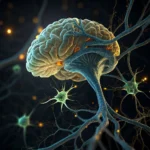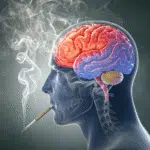Developmental and behavioral disorders, such as ADHD (Attention Deficit Hyperactivity Disorder), are a set of conditions that interfere with typical brain functioning, significantly impacting daily activities and social interactions. In this article, we will explore the fundamental aspects of Attention Deficit Hyperactivity Disorder (ADHD), which is known to affect concentration and self-control. Understanding these conditions is crucial to fostering supportive environments and effective intervention strategies.
Attention Deficit Hyperactivity Disorder (ADHD)
Attention Deficit Hyperactivity Disorder (ADHD) is a prevalent neurobiological condition. It often manifests in childhood but can continue into adulthood. This disorder is primarily characterized by inattention, hyperactivity, and impulsivity. Individuals with ADHD may face significant challenges in maintaining focus, following instructions, and controlling impulsive behaviors. Additionally, it is common for ADHD to co-occur with other disorders, such as narcissism, which can further exacerbate the difficulties faced (read more about it here).
Probable Causes of ADHD
Genetic Factors
Scientific studies suggest that genetics play a fundamental role in the development of Attention Deficit Hyperactivity Disorder (ADHD). When a family member is diagnosed with ADHD, the chances of other close relatives having the same disorder increase significantly. This finding implies that the origins of ADHD may be deeply rooted in heredity, reinforcing the idea that family biology directly influences the likelihood of developing the disorder.
Environmental Factors
Exposure to certain substances or environmental conditions during pregnancy and early childhood can also significantly contribute to the increased risk of developing Attention Deficit Hyperactivity Disorder (ADHD). For example, if the mother consumes alcohol or tobacco during pregnancy, these habits can impair the neurological development of the fetus, raising the chances of ADHD in the child. Cannabis use during pregnancy may increase the risk of ADHD development in children (read more about this topic by clicking here). Additionally, exposure to high levels of lead, found in some older wall paints or contaminated water, can adversely affect a child’s brain development, equally increasing the risk of this disorder.
ADHD also appears to be more common in children with extremely low birth weight, those born prematurely, and those exposed to exceptional early adversities, typical of “institutional deprivation“. Therefore, it is crucial that pregnant women adopt healthy practices and ensure a safe environment for both themselves and their children to minimize potential risk factors associated with ADHD.
Developmental Factors
Abnormalities in brain development, particularly in regions responsible for regulating attention, self-control, and impulsivity, are closely linked to Attention Deficit Hyperactivity Disorder (ADHD). Neuroscientific research has identified that specific areas of the brain, such as the prefrontal cortex, which plays a crucial role in decision-making and behavioral control, tend to be less active or have reduced volume in individuals with ADHD.
Brain imaging studies, such as functional magnetic resonance imaging (fMRI), reveal that children and adults with ADHD show abnormal activation patterns in these critical areas, suggesting a direct link between brain structure and the symptoms of the disorder. For example, it is suggested that differences in gray and white matter in the brain can directly influence executive functions and attention.
Moreover, these brain abnormalities can persist from childhood into adulthood, reinforcing the idea that ADHD is not only a behavioral disorder but also a neurological developmental problem. This finding intensifies the need for multidisciplinary approaches in treating ADHD, including medication, behavioral therapy, and educational interventions, to mitigate the effects of these brain discrepancies.
Therefore, understanding the neural basis of ADHD offers valuable insights for more accurate diagnosis and the development of more effective therapeutic strategies, highlighting the importance of continuing to explore the complex interaction between the brain and behavior.
Key Characteristics of ADHD
Inattention
Individuals diagnosed with Attention Deficit Hyperactivity Disorder (ADHD) often struggle significantly with maintaining focus on specific tasks, making them prone to frequent distractions even in controlled environments. This tendency toward distraction can lead to forgetting crucial details, both in personal and professional contexts. This negatively impacts their ability to meet commitments or complete tasks efficiently. Additionally, these individuals often face considerable challenges in maintaining an organized routine. This affects everything from time management to the organization of physical spaces like their home or workplace. The constant struggle to impose structure and order in their daily activities increases stress and significantly affects their self-esteem and interpersonal relationships.
Hyperactivity
This dimension is characterized by excessive restlessness, manifested by a notable difficulty in staying seated and a persistent feeling of needing to move. Individuals affected by this condition may demonstrate a constant urge to fidget or change positions, which often results in difficulties concentrating on activities that require prolonged attention or stillness.
Impulsividade
Impulsivity in individuals with ADHD can lead to a series of hasty decisions. Additionally, behaviors that are often inappropriate in social contexts or even risky tend to prevail. For example, a person with ADHD may interrupt others in conversations, make impulsive financial decisions without considering the consequences, or engage in dangerous activities without assessing the risks. Such impulsive actions can severely harm interpersonal relationships and expose the individual to potentially dangerous or problematic situations.
ADHD and Diet: An Important Connection
While inattention, hyperactivity, and impulsivity are the hallmarks of ADHD, few consider how diet can influence these symptoms. Recent studies suggest that certain eating patterns, such as selective eating, may exacerbate the challenges faced by those with ADHD. To explore how diet can impact the behavior and development of individuals with this disorder, check out our dedicated post on this topic by clicking here. Discover how nutritional interventions can make a difference in managing ADHD and improving the quality of life for those living with this condition.
Surprising Connection Between ADHD and Flat Feet
Did you know that ADHD can affect not only the mind but also the body? An innovative study reveals how the foot structure of children with ADHD may be impacted, resulting in a greater tendency to develop flat feet. This discovery challenges the traditional view of the disorder, pointing to the importance of a multidisciplinary approach in its treatment. Curious to learn more about this unexpected connection? Click here to understand how ADHD can even impact foot anatomy!
The Correlation Between ADHD and Hearing Loss: A Diagnostic Challenge
Recent research has uncovered an intriguing connection between Attention Deficit Hyperactivity Disorder (ADHD) and hearing loss. It is estimated that up to 20% of children with hearing loss also exhibit symptoms of ADHD. This overlap can complicate an accurate diagnosis, as hearing difficulties are often mistaken for inattention or hyperactivity. A child who does not fully understand instructions may appear disinterested or distracted, when in reality, they are struggling to grasp the information. Therefore, it is essential for healthcare and education professionals to consider hearing assessments as part of the diagnostic process to avoid misinterpretations. Read more about this topic in our post here.
Impacts of ADHD
ADHD can profoundly impact various aspects of a person’s life, including education, career, and interpersonal relationships. The ability to complete tasks may be severely affected. Students with ADHD, for example, may find it difficult to complete homework or prepare for exams due to inattention or procrastination. In the workplace, time management becomes a constant challenge, leading to missed deadlines or an inability to prioritize important tasks. Furthermore, maintaining healthy relationships can be compromised due to impulsive behaviors or difficulties in paying attention during conversations, resulting in misunderstandings and conflicts. Therefore, ADHD not only affects individual performance in daily activities but can also lead to significant complications in social and professional relationships.
Learn More About the Impact of ADHD on Family Life
If ADHD can significantly affect interpersonal relationships and family dynamics, imagine the scenario where both parents and children live with the disorder. In our content “The Challenges of Being Children with ADHD Parents,” we explore how the genetic inheritance and parents’ self-control difficulties influence the development of their children, creating a complex cycle of challenges. Want to understand how these family dynamics shape children’s behavior and upbringing? Read more about this fascinating topic and discover strategies to turn challenges into opportunities!
Diagnosis: What Other Conditions Can Present Similar Symptoms?
Although ADHD is a widely recognized condition, it’s crucial to remember that its symptoms can easily be confused with other medical conditions and external factors. Thyroid disorders, diabetes, and even sleep deprivation can mimic signs of ADHD, leading to premature diagnoses. Understanding these nuances is vital to avoid mistakes that may compromise the effectiveness of treatment. To delve deeper into how these conditions can affect ADHD diagnosis and what you can do to ensure an accurate evaluation, check out our detailed post on ADHD diagnosis. Don’t miss this opportunity to deepen your knowledge and ensure more precise and effective care.
ADHD and Gender: A Diagnostic Issue Deserving Attention
While exploring the nuances of ADHD diagnosis, it is essential to consider how gender can influence the identification and treatment of this condition. Studies show that girls and women often have their symptoms underestimated or misinterpreted, which can lead to late diagnosis and additional challenges in adulthood. To better understand how gender impacts the diagnosis and management of ADHD, we invite you to read our detailed post on this topic by clicking here. Discover why it is crucial to adjust our approach to ensure that everyone receives appropriate care.
Treatment Approaches and Support
The effective management of Attention Deficit Hyperactivity Disorder (ADHD) requires a holistic approach. Medication often becomes the foundation of treatment, helping to alleviate the most immediate symptoms. Next, behavioral therapies play a crucial role in modifying challenging behavior patterns.
In recent times, white, pink, and brown noise have gained attention as allies for those with ADHD. Want to know what science really says about it? Check out our enlightening post here.
In addition, ongoing support from professionals and loved ones is indispensable. This support provides a stable and understanding environment, essential for the individual’s progress. Additionally, individuals can implement time management techniques to improve organization and daily productivity.
Simultaneously, social skills training is vital. It helps to improve interpersonal interactions, reducing misunderstandings and strengthening relationships. Finally, cognitive-behavioral therapy has proven effective in addressing negative thoughts and developing healthier coping strategies.
Thus, a combination of these strategies, tailored to individual needs, facilitates more efficient ADHD management. In this way, affected individuals can achieve better quality of life and greater personal fulfillment.
Conclusion and Encouragement
Coping with ADHD represents a considerable challenge. However, by gaining a deep understanding and receiving appropriate support, individuals with ADHD can achieve remarkable levels of success and well-being. First, recognizing the signs and seeking early intervention are essential steps toward promoting a balanced life. Additionally, we encourage open conversations and the pursuit of educational resources to enhance knowledge and awareness about ADHD. These measures can help create clearer pathways for managing and adapting to this condition.
Although it is a constant challenge, ADHD is far from being a sentence for failure. In fact, many prominent figures in the world of business, art, and sports live with the disorder and have shown that it is possible to turn it into a driving force. Want to see how these inspiring stories can change your perception of ADHD? Click here to learn about famous individuals who, with proper treatment and determination, overcame adversity and achieved success.
Share Your Experiences About ADHD
If you identified with the signs or symptoms mentioned, how about sharing your experience with a comment below? Have you lived with ADHD, or do you know someone who has? How does it impact your daily life or that of someone close to you? Your story can help others better understand this disorder and find new ways to cope with it. Let’s open up this space for conversations and experience sharing—every story counts!
To learn more about other mental disorders, explore our related articles and dive into the mental health and wellness sections for valuable insights by clicking here. Additionally, subscribe to our newsletter by clicking here to receive more information about mental health, neuroscience, and many other fascinating topics directly to your inbox, regularly and for free!

















